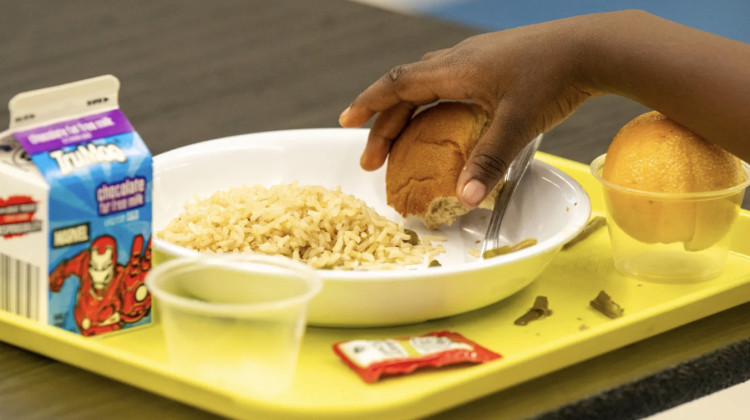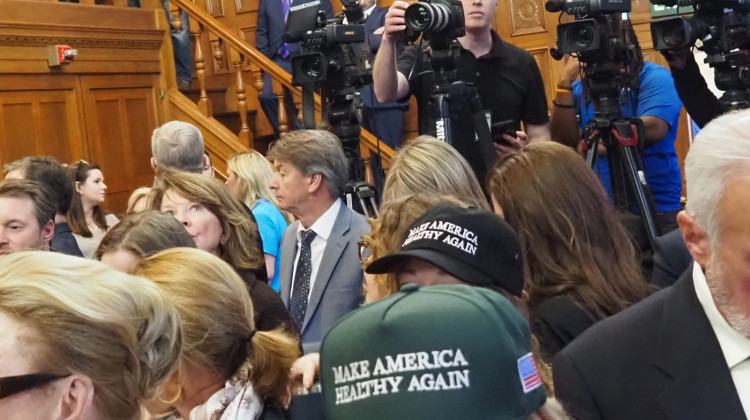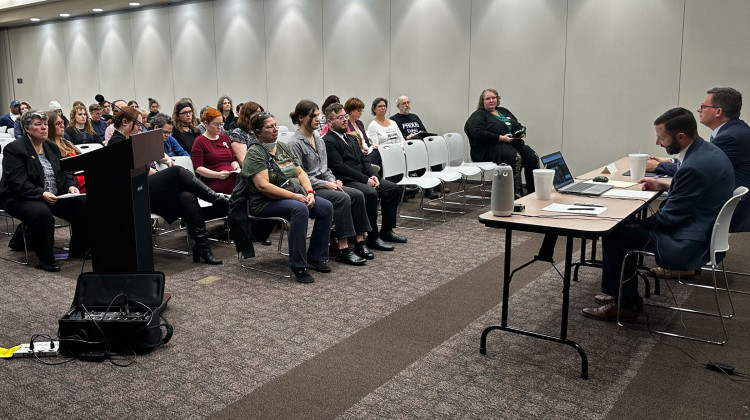On Monday, the Allen County Board of Commissioners approved a needle exchange program to curb the spread of hepatitis C and HIV with a 2-1 vote.
The meeting was meant to serve as a public hearing on the Allen County Department of Health’s recommendations for a needle exchange. But after an hour of overwhelming support for the program from the public, the commissioners decided to take a vote.
Allen is the eighth county to ask the state for approval to start a syringe exchange program. Four counties have been approved by the state: Scott, Monroe, Madison and Fayette.
Allen County Health Commissioner Dr. Deb McMahan has been a leading voice in the process of getting a needle exchange approved in Allen County. She says now is the time to move forward to combat the epidemic.
“I think it’s been well-discussed,” McMahan says. “It’s been vetted at the small group level, vetted at the community level, then the stakeholder level and finally the commissioners, and I think the right decision for our community was made.”
The Centers for Disease Control and Prevention links the increase of hepatitis and HIV cases to intravenous drug use, which has been a problem statewide.
According to the Allen County’s 2016 Infectious Disease report, there were 244 reported cases of hepatitis C in 2014. That number climbed to 384 the next year; that’s a 38 percent increase between 2014 and 2015.
Allen County Commissioner Therese Brown was one of the two votes approving the needle exchange. She says her vote came from a place of sensitivity.
“Law enforcement has a job to do, but there has to be a level with us in government to be compassionate to the issues that are out there facing our community,” Brown says.
Brown says it’s critical for stakeholders in Allen County to get in front of the effort to slow the spread of hepatitis and HIV cases in the county and around the state.
“To be proactive, sometimes you have to step out ahead of it instead of being behind it and saying woulda, coulda, shoulda,” she says. “So for me, that was pretty much why I voted in favor of it.”
Michelle Merritt was one of those who testified at the public hearing.
Last year, her 17-year-old stepson Derek was the victim of a drug overdose, and while Derek’s life was saved just in time, she says she’s now an “accidental advocate” of the needle exchange. She says an exchange program can guide drug users to treatment.
“All of this is about the various points of access that can get you to recovery,” Merritt says. “And this provides one more point of access.”
Merritt believes the approval by the commissioners and the willingness of stakeholders to work together can help combat the stigmas that prevent drug users from reaching out for treatment.
“I think that any time we step forward and come out of the shadows, we say it’s okay to come out of the shadows,” she says. “And that’s when we get well, is when we’re out of the shadows.”
Even though the commissioners approved the measure Monday, there are still steps the Department of Health must take before the needle exchange can take full effect.
“We have to get the state on board with this, so we will petition and write a formal letter requesting we be allowed to move forward with the exchange services program, and get their approval, or [see] if we have to make adjustments,” says McMahan. “And then we’ll begin to find the funding and writing grants for the equipment and begin to implement.”
McMahan says her hope is for the program to launch no later than July. That desired launch date is contingent on state approval, but she says she doesn’t see it being a difficult process.
 DONATE
DONATE










 Support WFYI. We can't do it without you.
Support WFYI. We can't do it without you.